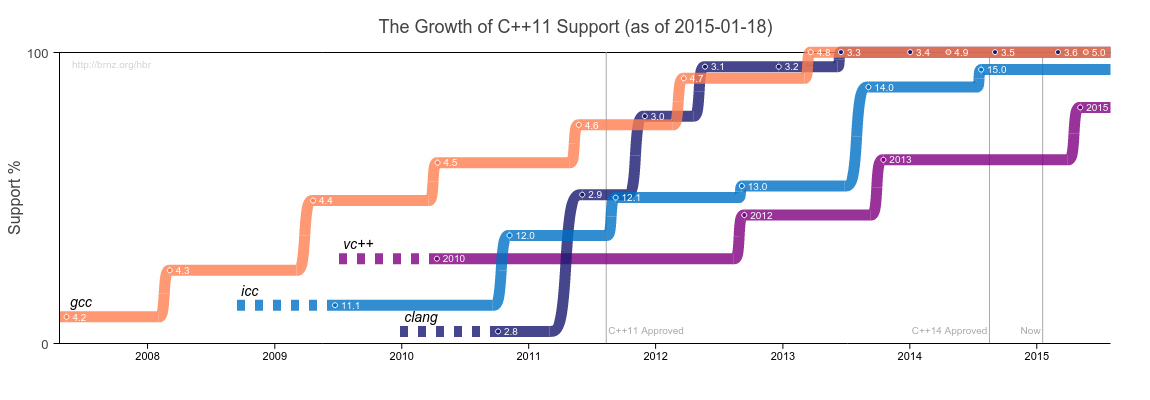The Growth of Modern C++ Support -- Jonathan Adamczewski
A picture is worth a thousand words, a graph even more:
The Growth of Modern C++ Support
by Jonathan Adamczewski
From the article:
I’ve charted the numbers from Christophe’s data for C++11, C++11 Concurrency, C++14 and C++17.

.png)
